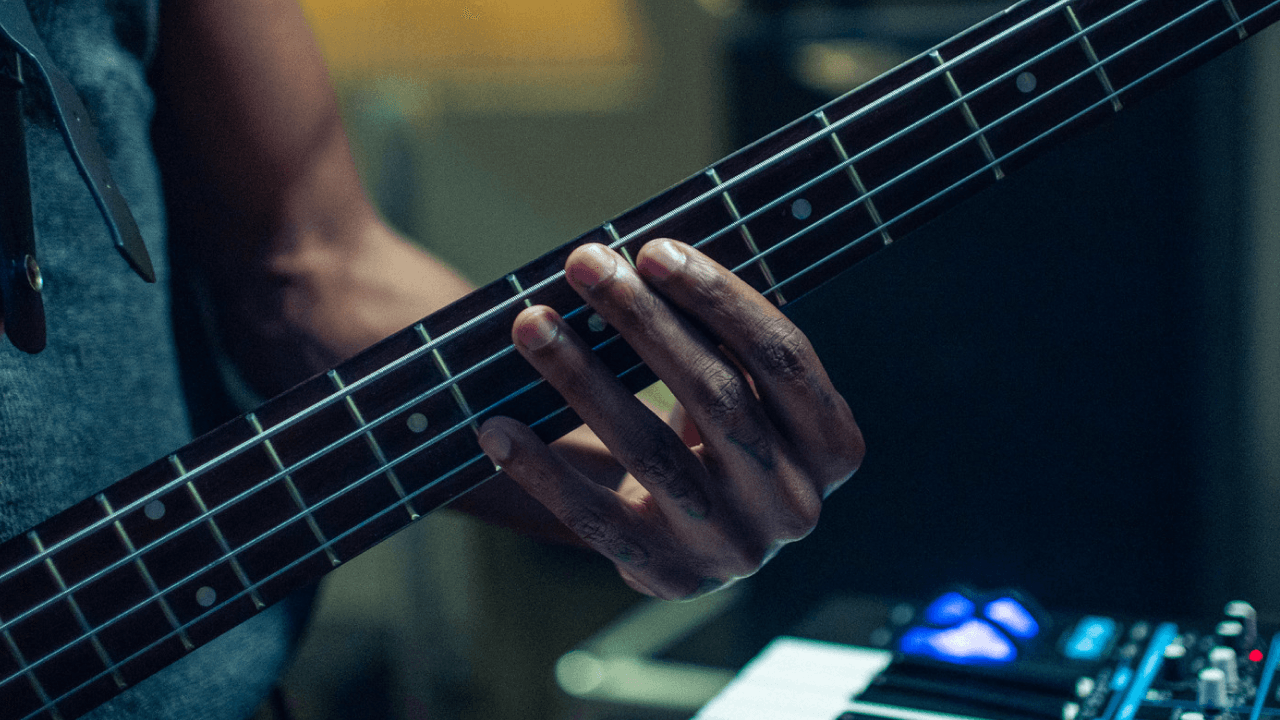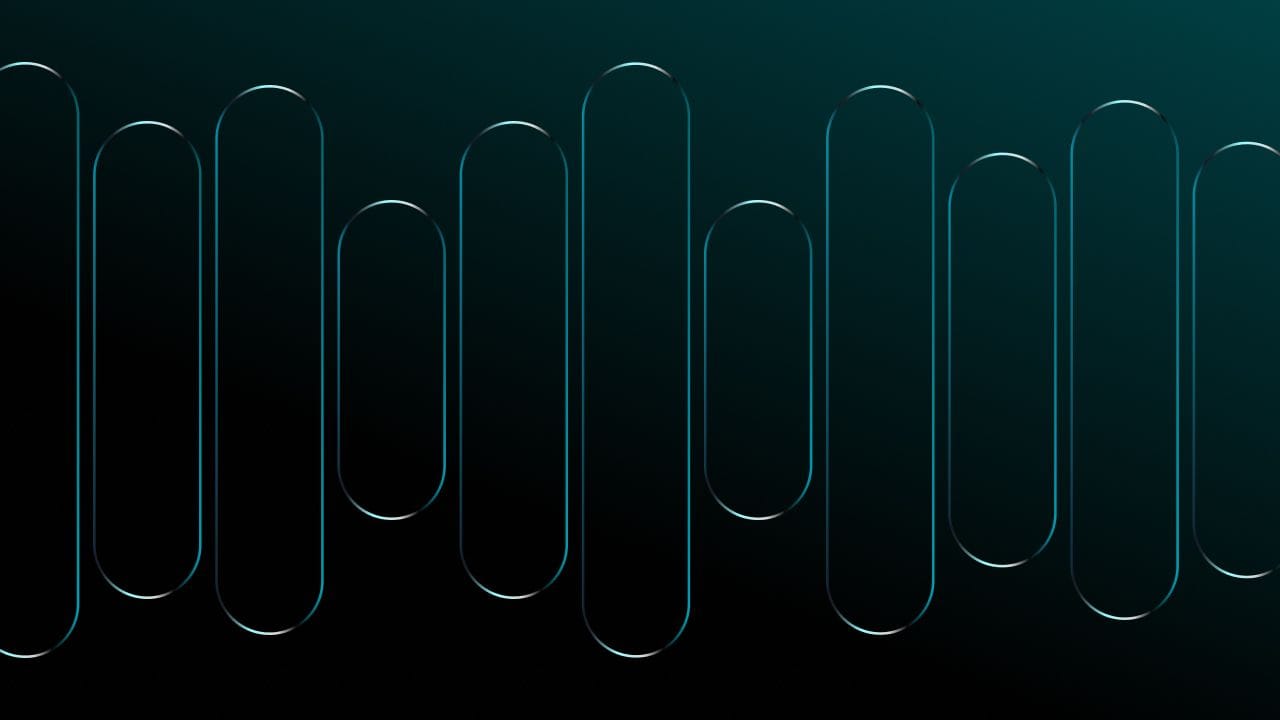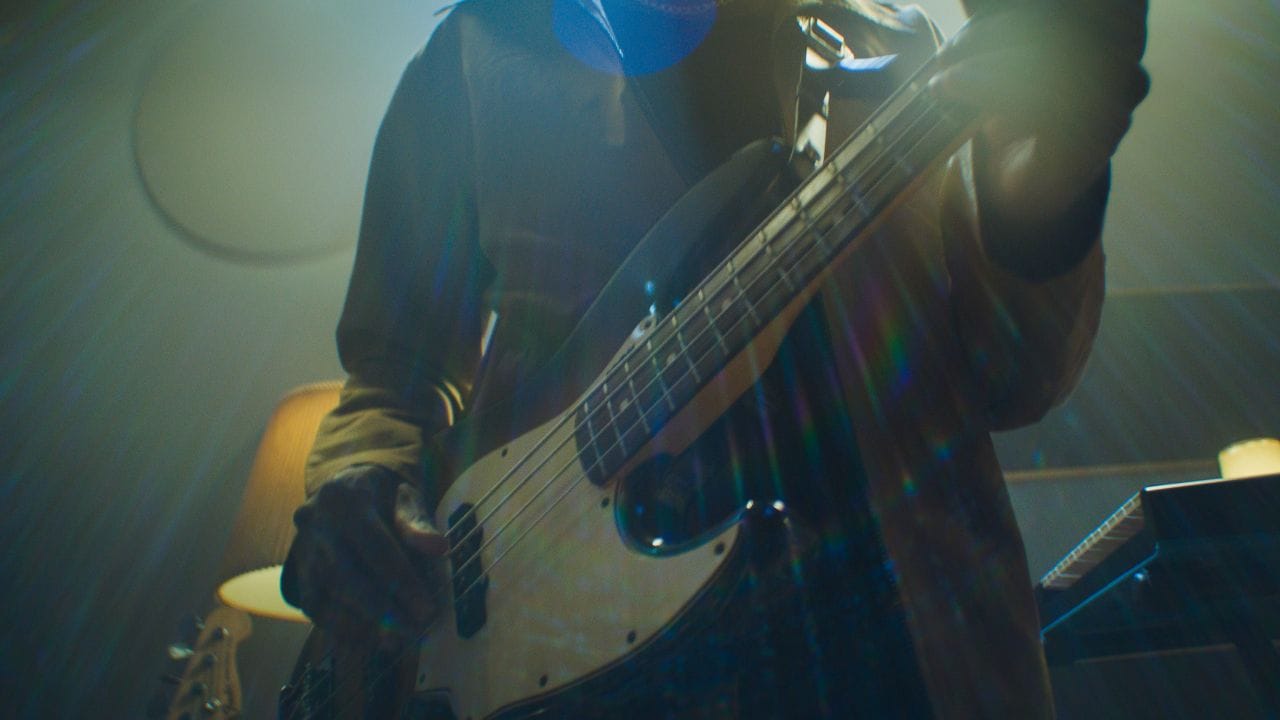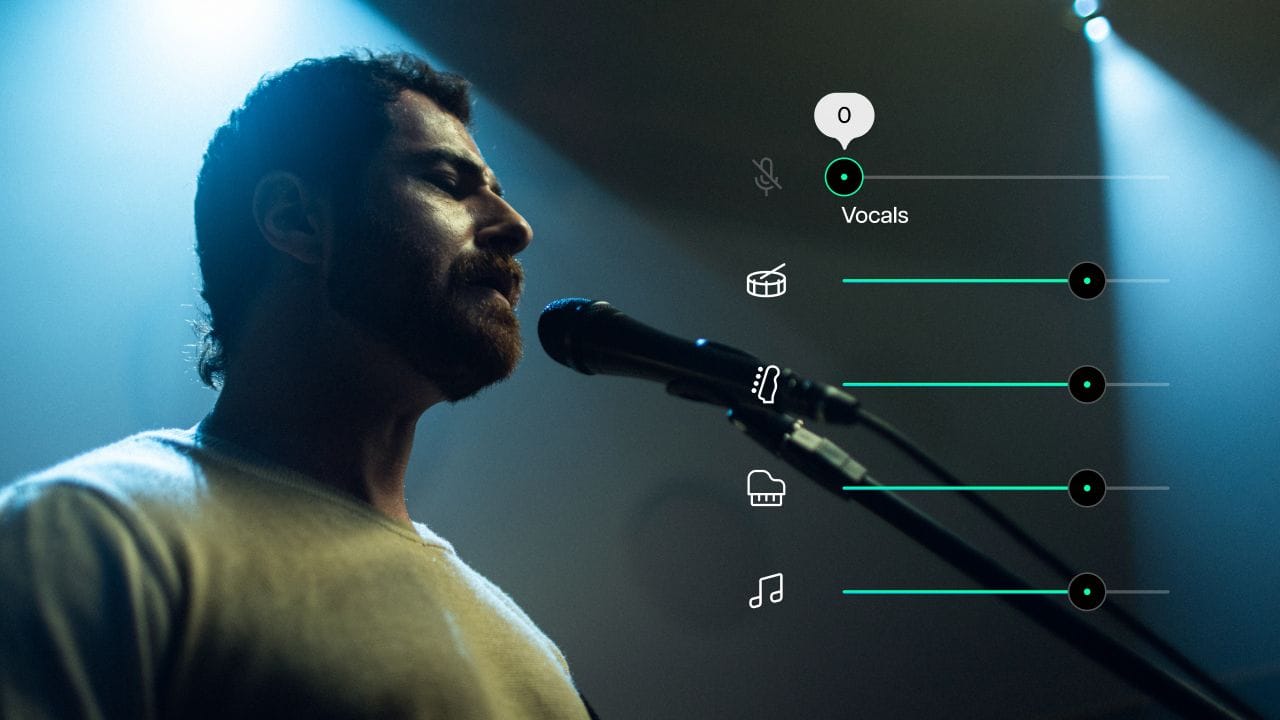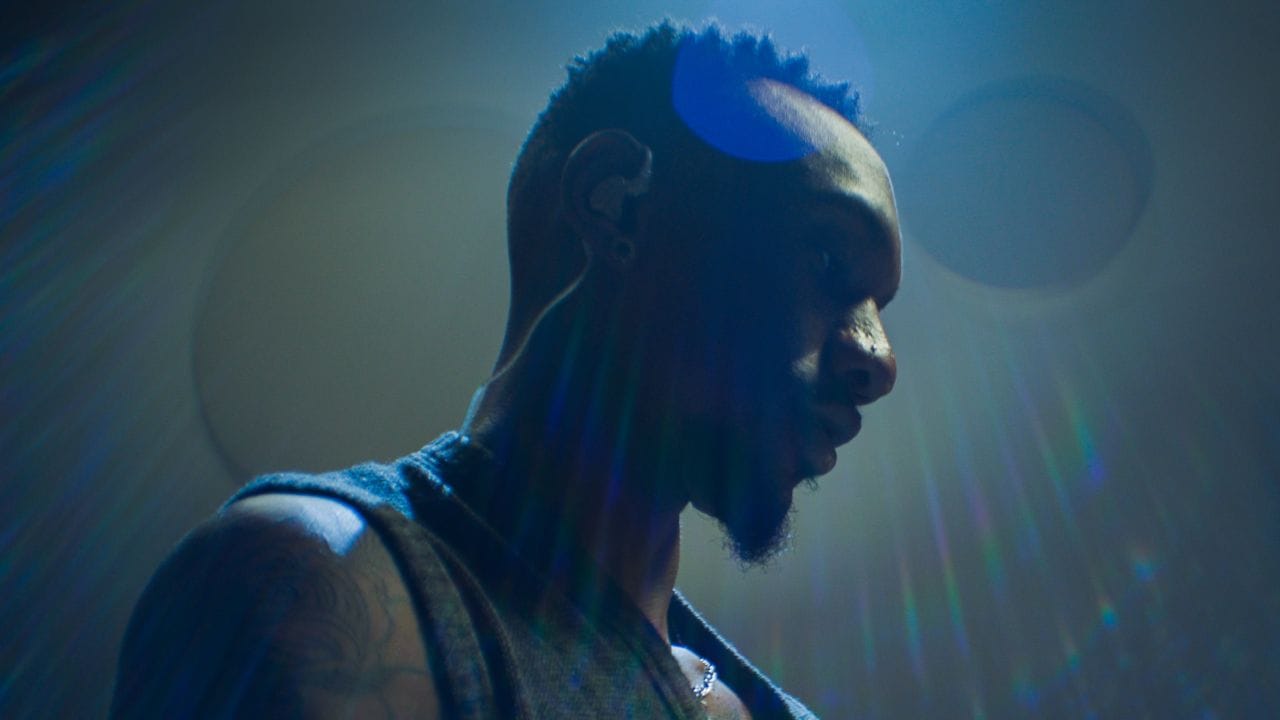The music game is moving fast, faster than most of us can keep up. We’ve lived through big shifts before, from analog to digital, from hardware samplers to DAWs. Each one changed how we create, record, and share music.
Now, AI in music is the next leap. And it’s not coming, it’s already here, shaping sounds on stage and in the studio. Ignoring it is like refusing to plug in when the world went electric. The artists who lean in will move further, faster. Let’s break down why embracing AI might be the smartest career move you can make right now.
AI in Music isn’t Coming, It’s Already Here
AI in music isn’t some distant idea or overhyped buzzword. It’s happening right now. A survey of over 1,100 music producers found that one in four are already using AI in their creative process. This isn’t just experimental producers testing a toy; it’s proof that AI has officially moved into the “early majority” phase. Translation: a lot of your peers are already on board. Even more telling, 70% of producers believe AI will have a massive impact on the future of music production.
Here’s why that matters. The artists who adapt early are usually the ones setting trends or at least staying in the game, while the ones who ignore new tech end up playing catch-up. We’ve seen it before, from digital recording to streaming, the holdouts always realize too late how much they missed.
Right now, AI is playing that same role. It’s not about letting a machine replace you. It’s about adding a new layer to your toolkit that’s already helping other musicians work smarter, faster, and more creatively. And most of it isn’t even about writing full songs for you.
Around 74% of AI-using producers leverage it for technical work like stem separation. That kind of grunt work frees you up to stay in the zone and keep creating. If you’re not exploring it yet, there’s a good chance you’ll be watching from the sidelines while others pass you by.
AI is Your New Bandmate, Not Your Replacement
Let’s clear the air on the biggest fear out there: AI taking over creativity. That’s not what’s happening. AI works best when it’s a partner, not a replacement. Think of it like a session player who can jump into any style, never gets tired, and always has a new idea to throw your way. You’re still the one calling the shots, shaping the sound, and deciding what stays.
We’ve all been stuck staring at a blank DAW screen or looping the same idea to death. This is where AI comes in clutch. Hum a melody and watch it turn into a full chord progression. Tap in a beat and get a bassline to match. It’s like having a jam partner who’s always ready, no matter the hour, and never runs out of ideas.
And here’s the thing, it’s not here to steal your sound. The best tools actually learn your style and adapt to you, serving up ideas that already feel like “you.” You still have full control. You’re the one curating, tweaking, and making it yours.
AI will not replace musicians, but musicians who use AI will replace those who don’t. If you combine your talent with AI’s speed and versatility, you are playing a whole different game. Ignore it, and you might just start sounding like you’re stuck in last year’s setlist.
Stop Wasting Hours: Let AI Handle the Grind
Master faster, keep creating
Mixing all night and losing the plot is a rite of passage, not a plan. AI mastering gives you a polished starting point in minutes, so you keep momentum instead of chasing tiny EQ moves. Save the big-budget engineer for your flagship single. For demos, beat packs, and quick drops, this gets you across the line without draining your energy.
Mix smarter, not harder
AI mix assistants take care of the grunt work by analyzing your session, suggesting balances, and revealing masking so your kick, bass, and lead stop fighting for space. Think of it like a tireless assistant who sets up the room while you focus on feel, tone, and intent. You just start from a cleaner place and avoid ear fatigue.
Build tracks faster
Sometimes the hardest part is taking a simple idea and turning it into a full arrangement. Moises AI Studio lets you start with a riff or melody and instantly add layers like drums, guitar, bass, or keys that lock into your timing and style.
Instead of losing hours building from scratch, you stay in the creative flow, experiment with new textures, and hear your ideas grow in real time.
Pull any part, any time
Stem separation used to be a dark art. Now it’s routine. With Moises, you can separate vocals, drums, bass, and more from a stereo file in seconds. Study an a cappella for phrasing, build a remix from a favorite groove, mute the guitar and sit in like you’re part of the band, or generate a quick backing track for rehearsal. When ideas move fast, access matters.
Clean up in seconds
Noise, clicks, harsh esses, timing that’s a hair off, a vocal that needs a gentle nudge, none of that should stall a session. AI cleanup tools quickly remove distractions while keeping performances human. Less menu diving, more music.
Keep the human feel
AI is here to serve the performance, not sterilize it. Use it to reveal the pocket, keep transients alive, and preserve the quirks that make a take yours. If something sounds too stiff, dial it back and keep the grit. Taste wins.
Release more music, grow faster
Speed and consistency matter. The more high-quality releases you finish, the more chances you have to connect with listeners, feed the algorithm, and land opportunities. Offload the technical chores to AI, keep your head in the creative work, and get songs out while the spark is still hot.
How AI Puts Your Music in Front of the Right People
Making great music is only half the game. Getting people to hear it and remember you is the other half. AI is changing both. It’s no longer just about writing tracks; it’s about using the same tech to get them in front of the right ears.
A TuneCore survey found that 27% of indie artists already use AI for more than production. We’re talking album artwork, promo videos, fan engagement, and social posts, which used to eat up hours or drain your budget. If you’re not using it, you work harder while your peers work smarter.
Smarter targeting
Streaming platforms already run on algorithms. You can tap into that same AI power for your own strategy, analyzing listener data, tracking what songs perform best where, and spotting audience hotspots for tours or playlist outreach. AI ad tools can even find fans most likely to vibe with your sound and adjust campaigns in real time for better results.
More content, less burnout
Struggling for fresh social ideas? AI can help write captions in your style, create lyric videos, design cover art, and even make live show visuals. It’s about keeping your feed alive without burning yourself out.
Personalized fan experiences
From AI-powered newsletters that recommend content based on what fans click to chatbots that talk like you, AI can help deepen fan connections while you focus on the music. Even the big labels are using AI to predict potential hits. That’s not about replacing you, it’s about using every tool available to ensure your music reaches the right audience. Ignore it, and you risk shouting into the void. Learn it, and you could run your own promo machine.
AI Tools Every Musician Should Know
Here’s what AI in music looks like right now, and how you can start using it today. These tools can save time, spark ideas, and improve your tracks.
- Moises AI Studio – The game-changer. Play your idea — a riff, a beat, a melody — and it generates drums, bass, or other instruments that match your timing and style in real time. It’s like having a virtual bandmate who listens, adapts, and keeps you in your creative flow.
- Moises App – Separate any song into vocals, drums, bass, and more. Change the key, adjust the tempo, create custom backing tracks, isolate parts to learn, or remix with ease.
- Moises Lyric Writer – Get lyric ideas, rhymes, or song concepts on demand with Lyric Writer. It’s like having a co-writer by your side whenever you’re stuck on a verse or looking for fresh inspiration.
- AI Visual Generators (Canva, Midjourney, DALL·E) – Create unique cover art, posters, or video visuals from a simple text prompt. Affordable, fast, and customizable to match your sound.
- Rotor Videos – Quickly turn your tracks into music videos or promo clips using AI. Great for keeping your content fresh and engaging without a big production budget.
- And last but not least… ChatGPT – The platform we’ve all grown accustomed to. Use it to brainstorm lyric variations, generate song titles, or spark fresh creative angles when you need a push.
New tools pop up every month, but the takeaway is simple: these aren’t gimmicks. They’re shortcuts, creative sparks, and ways to work smarter. Ignore them, and you might be saying no to your next big idea.
Why Fighting AI Will Only Hold You Back
Change can feel uncomfortable, especially when it touches something as personal as your music. But here’s the truth: the shift is already happening, and the artists who lean into it will move forward while those who resist risk being left behind. When technology changes the game, you can either block it out or learn how to use it to your advantage.
Even producers who have sworn by analog gear are starting to bring AI into their process, not to give up control but to protect and enhance their art. The smart ones see AI as a way to be more productive and more creative at the same time. That is a winning combination. It means getting more music out without burning out, trying ideas you never could before, and polishing your sound to a professional level from anywhere.
And no, AI is not replacing human-made music anytime soon. It can pump out stock background tracks, but when it comes to music that moves people, it is your taste, your vision, and your emotion that matter. AI simply clears the busywork so you can focus on what is inspiring.
Think about it. Drum machines did not erase drummers, and synthesizers did not kill orchestras. They created new sounds, new genres, and new opportunities. AI is following the same path. Learning it does not dilute your artistry; it expands it. The artists who adapt will have more tools, more reach, and more ways to make their mark. Those who do not will be playing catch-up.
Catch the Wave Before It Passes You By
The takeaway here is simple. Ignoring AI will not stop its impact on music. It will only leave you watching from the sidelines while others move ahead. Embracing it does not mean compromising your artistry or “cheating.” It means adding fuel to your creativity and speed to your workflow.
We have all had nights of endless editing and stretches of creative block. AI will not write your hit song for you, and you would not want it to, but it can take you from a 2 AM idea to a finished track by 3 AM. It can turn a rough mix into a streaming-ready master without a massive studio bill. It can help you reach listeners who will connect with your music without needing a big marketing team. It is like having a roadie, an engineer, and a marketing assistant all inside your laptop so you can focus on making music.
You do not need to dive in all at once. Start with one tool that fits your workflow. Separate a stem with Moises, jam with an AI-generated drum pattern, or let an AI suggest a mastering EQ and see what happens. You will likely find that these tools are not here to replace your creativity, but to remove the roadblocks in its way.
Adopting AI in your music career is not about following a trend. It is about staying true to your sound while giving yourself every advantage. Technology has always moved music forward, from multitrack recording to MIDI to digital distribution. AI is simply the next wave. Do not let it pass you by. Catch it, and ride it toward new possibilities in your music career. Your future self and your future fans will thank you.

